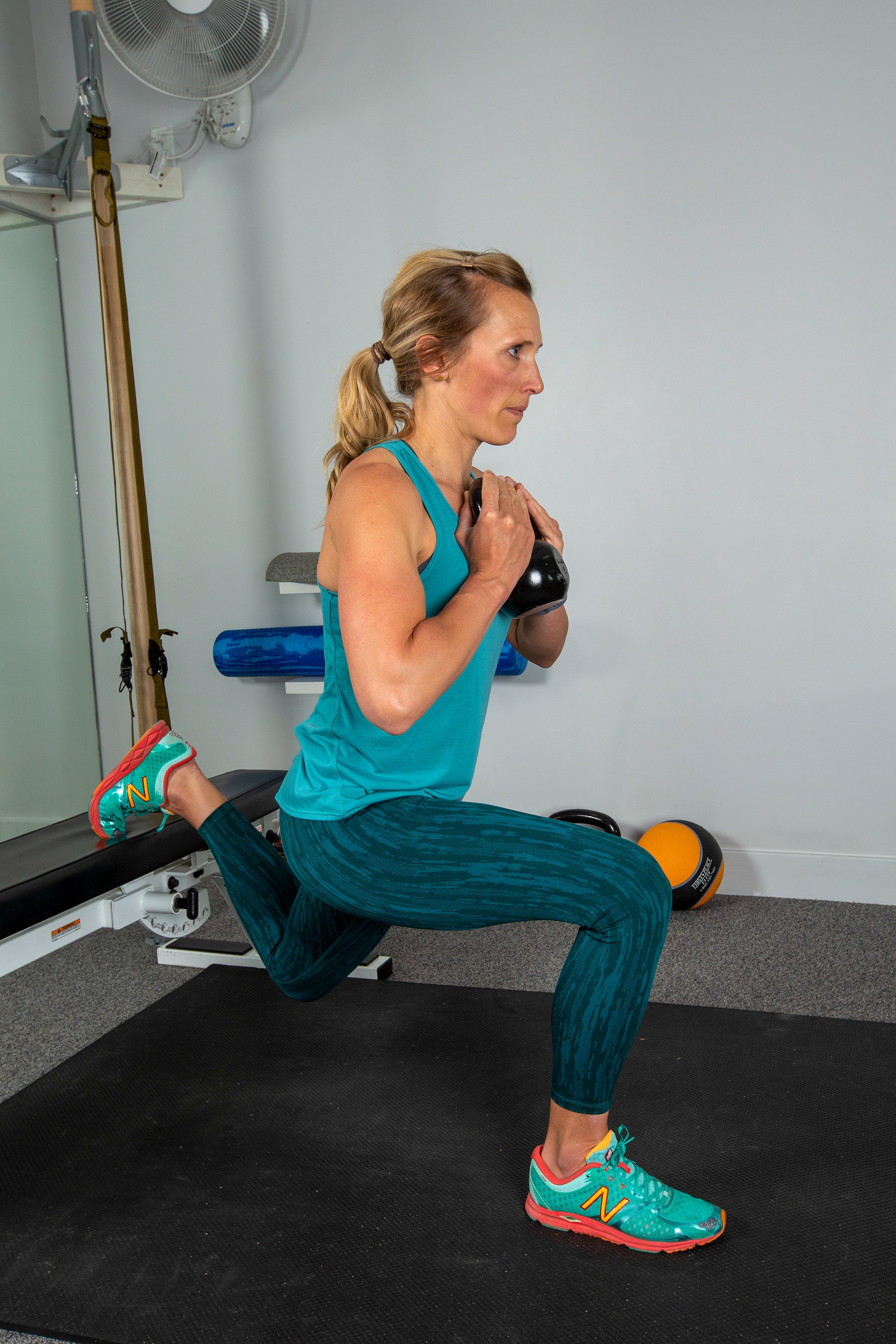Patellar tendinopathy, commonly known as “jumper’s knee,” is one of the most frequent chronic knee injuries in tennis and racquet sport athletes. The repetitive, high-impact nature of tennis—especially during sudden stops, lateral movements, and explosive jumps—places a lot of strain on the knees. This makes tennis players more susceptible to patellar tendinopathy.
Previously referred to as tendinitis, this condition has evolved in how it’s understood. Recent research indicates that patellar tendinopathy is not caused by inflammation, but rather an imbalance in loading—where activity exceeds the body’s ability to recover. This imbalance, often coupled with weakness in the lower body muscles, leads to breakdowns in tendon cells.
For tennis players, the best treatments for patellar tendinopathy include modifying activity to match the injured tendon’s tissue tolerance, alongside a progressive strengthening exercise program. These treatments have been shown to remodel the injured tendon and, importantly, help athletes return to the tennis court with less pain and better function.
Effective Knee Pain Treatments for Tennis Players in Boulder and Lafayette
If you’re dealing with knee pain from tennis, seeking specialized care is essential. At Mend Colorado, our team of experienced physical therapists understands the demands that tennis places on the body, and we offer targeted treatment for knee pain in tennis players. Our approach to knee pain treatments in Boulder and Lafayette focuses on progressive strengthening exercises, manual therapy, and activity modification. These methods are proven to reduce pain and improve function for tennis players, enabling them to return to the sport with greater confidence.
A Randomized Controlled Trial on Physical Therapy for Patellar Tendinopathy
A landmark study published in the British Journal of Sports Medicine (2020) provides valuable insights into the most effective physical therapy exercise programs for patellar tendinopathy. In this randomized controlled trial, athletes with chronic patellar tendon pain (lasting over 2 years) were randomized into one of two exercise programs: an eccentric training program or a progressive tendon strengthening program.
Eccentric Training Program
The eccentric group performed painful exercises (rated <5/10 on the pain scale) twice a day for 12 weeks. Key exercises included the decline single-leg squat with body weight, progressing to holding weights or using a loaded backpack. The eccentric phase was performed with the involved leg, while the concentric phase (muscle shortening) was performed with the non-involved leg.
Progressive Tendon Strengthening Program
The progressive strengthening group followed a 4-stage approach, with each stage focused on strengthening the knee while keeping pain levels at or below 3/10. The goal was to progressively load the tendon, ensuring that the knee could handle higher intensities while preventing further damage.
- Stage 1: Daily isometric exercises (e.g., single-leg press or knee extension at 60 degrees) for 5 x 45 seconds at 70% of maximum voluntary isometric contraction (MVIC).
- Stage 2: Continue isometric exercises on Day 1, followed by isotonic exercises on Day 2. This stage progressed in load and knee flexion, from 4 sets of 15 reps to 4 sets of 8 reps.
- Stage 3: Plyometric exercises on Day 3, including running, jump squats, and box jumps. Start with 3 sets of 10 with both legs, progressing to 5 sets of 5 with one leg. Strength training continues on Day 1 and Day 2.
- Stage 4: Sport-specific training, with continued strength training twice a week.
Each group also performed a similar routine of lower body flexibility and glute strengthening exercises to complement the strengthening protocol.
Why Physical Therapy Is Crucial for Tennis Players in Boulder and Lafayette
Tennis players face unique challenges when it comes to knee pain, particularly from patellar tendinopathy. With intense lateral movements, explosive jumps, and frequent bending, the knees undergo a lot of stress during matches and training. Physical therapy plays a crucial role in addressing knee pain symptoms and treatments for tennis players by not only alleviating pain but also strengthening the muscles surrounding the knee to prevent further injury.
At Mend Colorado, we understand the specific needs of tennis players and customize our treatments accordingly. Whether you’re experiencing knee pain due to tendinopathy or other causes, our specialized physical therapy programs focus on strengthening, mobility, and return-to-sport protocols that can help you get back on the court as soon as possible.
Key Phases of Knee Tendon Strengthening for Tennis Players
For tennis players suffering from knee pain, particularly patellar tendinopathy, following a progressive strengthening program is essential for recovery. The 4-stage program outlined in the randomized trial is a great framework for restoring function while reducing pain. Here’s a closer look at how each stage can help you recover:
- Stage 1: Focus on isometric exercises to build initial strength without excessive strain on the tendon.
- Stage 2: Begin isotonic exercises to gradually increase the load and range of motion in the knee.
- Stage 3: Plyometric exercises help restore explosive strength, which is crucial for tennis movements such as jumping and rapid directional changes.
- Stage 4: Return to sport-specific movements with continued strength training to ensure the tendon can withstand the demands of tennis.
Each of these stages is designed to progressively load the tendon while minimizing the risk of further injury, helping you return to the tennis court safely and effectively.
Get Back on the Court with Expert Knee Pain Treatment
Patellar tendinopathy and knee pain should not prevent you from enjoying tennis. At Mend Colorado, we specialize in treating knee pain in tennis players with evidence-based methods that focus on strength, mobility, and pain management. Our personalized treatment programs are designed to help you recover faster, reduce the risk of re-injury, and get back to playing the sport you love.
Contact Mend Colorado today to schedule an appointment and learn more about how our physical therapy services can help you manage knee pain and improve your performance on the tennis court.

